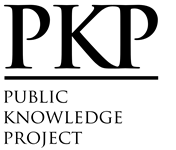Navigating Fish Food Insecurity by Simultaneous Household and Marketed Surplus-Led Productions in Kogi State of Nigeria
Abstract
The study determined the factors influencing simultaneously household and marketed surplus-led fish production in Nigeria’s Kogi State using cross-sectional data collected from 105 fish farmers. The sample size was achieved using a multi-stage sampling technique and the collected data were elicited viz. structured questionnaire complemented with interview schedule. Both descriptive and inferential statistics were used to achieve the conceptualized objectives. Empirical evidence showed that marketed surplus-led fish production was affected by less risky non-farm incomes with high-income turnover and capital paucity. However, marketable surplus-led production was enhanced by enlarged income, readily available demand that matches the supply, and entrepreneurship zeal among the youthful population in the studied area. In view of the foregoing, the research recommends the need to strengthen the value chain of fish marketing so as to contain any challenge viz. market imperfection which in the long run will jeopardize market-orientation of fish farming which is nascent among most of the farmers in the studied area. In addition, there is a need to address gender inequality in order to arrest poverty vulnerability among women folk viz. budget gender mainstreaming so as to achieve growth and development which are pre-requisite for globalization.
Keywords: Food security; Marketable surplus; Purpose; Fish farming; Kogi State; NigeriaFull Text:
PDFDOI: https://doi.org/10.29103/aa.v8i2.4779
 Article Metrics
Article Metrics
 Abstract Views : 400 times
Abstract Views : 400 times
Refbacks
- There are currently no refbacks.
Copyright (c) Acta Aquatica: Aquatic Sciences Journal

This work is licensed under a Creative Commons Attribution 4.0 International License.









